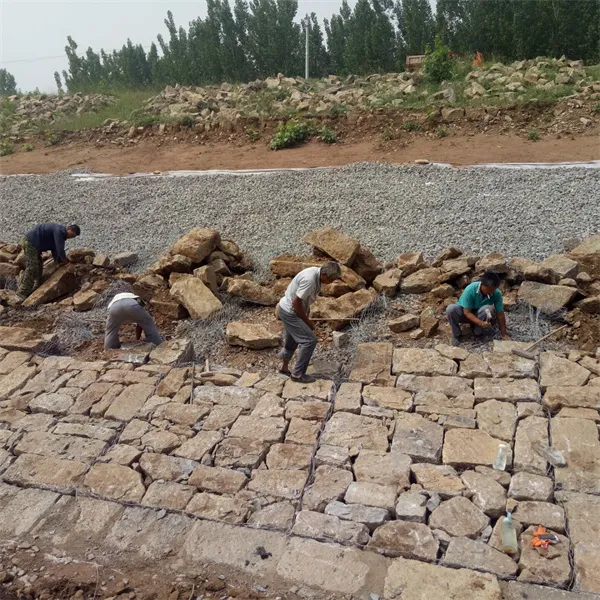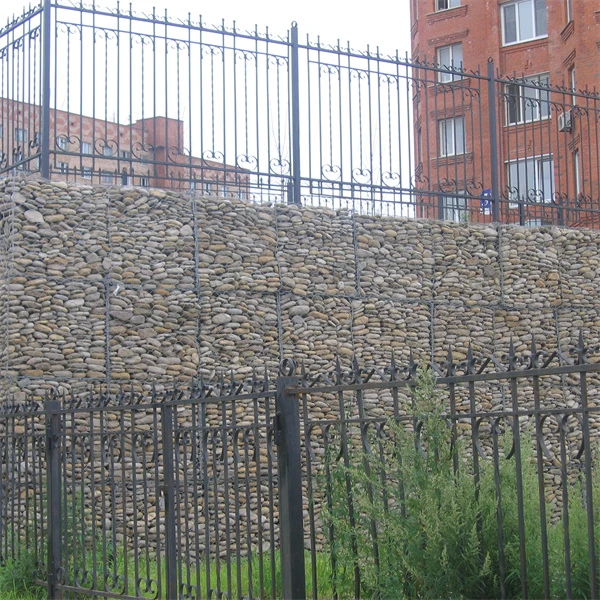ਮਈ . 28, 2025 20:55 Back to list
Stone Cage Nets - Durable Erosion Control & Construction Solutions
- Overview of Stone Cage Net Applications
- Technical Advantages in Modern Engineering
- Supplier Comparison: Key Metrics & Certifications
- Custom Solutions for Diverse Projects
- Case Studies: Real-World Implementations
- Quality Assurance & Industry Standards
- Future Trends in Stone Cage Net Manufacturing

(stone cage net)
Understanding the Role of Stone Cage Nets
Stone cage nets, also known as gabion mesh systems, are critical in erosion control and structural reinforcement. These wire-based containers filled with stones are widely used in civil engineering, landscaping, and environmental protection projects. With global infrastructure investments projected to reach $9.1 trillion by 2027 (Global Infrastructure Outlook), demand for reliable stone cage net
suppliers has surged by 18% since 2020.
Technical Superiority in Design
Leading stone cage net factories utilize high-tensile galvanized steel wires (Galfan-coated for corrosion resistance) with a minimum tensile strength of 38–50 kN/m. Advanced manufacturing processes ensure:
- Double-twist hexagonal mesh patterns for 23% greater load distribution
- Automated welding systems achieving ±2 mm dimensional accuracy
- UV-resistant polymer coatings lasting 40–60 years in harsh environments
Supplier Benchmark Analysis
| Parameter | Factory A | Factory B | Factory C |
|---|---|---|---|
| Production Capacity (m²/month) | 120,000 | 85,000 | 150,000 |
| ISO 9001 Certification | Yes | No | Yes |
| Lead Time (days) | 14–21 | 30–45 | 10–15 |
Tailored Engineering Solutions
Reputable stone cage net suppliers offer modular customization:
- Mesh sizes: 60×80 mm to 100×120 mm
- Wire diameters: 2.0–4.0 mm with ±0.1 mm tolerance
- Specialized coatings: Zinc-5% Aluminum-RE or PVC variants
Project-specific adaptations can reduce material costs by up to 35% while maintaining EN 10223-3 and ASTM A975 compliance.
Project Implementation Examples
Coastal Defense Project, Netherlands (2022):
- 12,500 m² of stone cage nets deployed
- Wave impact resistance: 6.5 kN/m²
- Service life extension: 55 years
Highway Retaining Wall, USA (2023):
- Modular stone cage net system installation
- Load capacity: 250 kPa
- Construction time reduction: 40% vs traditional methods
Compliance and Durability Testing
Top-tier stone cage net factories subject products to:
- Salt spray tests exceeding 1,500 hours (ASTM B117)
- Compression resistance up to 3,500 kg/m²
- Third-party verification of weld shear strength (min. 1.2 kN)
Innovations in Stone Cage Net Production
Forward-looking stone cage net suppliers are integrating AI-driven quality control systems that detect mesh defects with 99.7% accuracy. Sustainable manufacturing practices have reduced carbon footprints by 22% since 2019 through recycled material integration. With the global gabion market expected to grow at 5.8% CAGR through 2030 (Market Research Future), factories adopting robotic assembly lines can now produce 1,200 units per shift—a 300% efficiency gain over manual methods.

(stone cage net)
FAQS on stone cage net
Q: What materials are commonly used in stone cage nets?
A: Stone cage nets are typically made from galvanized steel wire or PVC-coated steel wire. These materials provide durability and resistance to corrosion. The choice depends on environmental conditions and project requirements.
Q: How to choose reliable stone cage net suppliers?
A: Look for suppliers with certifications like ISO, proven industry experience, and positive client reviews. Request product samples to assess quality. Ensure they offer customization and timely delivery options.
Q: What are the advantages of sourcing from stone cage net factories directly?
A: Direct factory sourcing often reduces costs and ensures competitive pricing. Factories can tailor products to specific project needs. It also allows better quality control and faster production turnaround.
Q: Where are stone cage nets typically used?
A: They are widely used in civil engineering projects like slope stabilization, riverbank protection, and road construction. They also serve as retaining walls and erosion control solutions in landscaping.
Q: Can stone cage net factories provide custom sizes and designs?
A: Yes, most factories offer customization in mesh size, wire diameter, and dimensions. Provide project specifications for tailored solutions. Custom orders may require longer lead times.
-
Visualizing Gabion 3D Integration in Urban Landscapes with Rendering
NewsJul.23,2025
-
The Design and Sustainability of Gabion Wire Mesh Panels
NewsJul.23,2025
-
The Acoustic Performance of Gabion Sound Barriers in Urban Environments
NewsJul.23,2025
-
Mastering the Installation of Galvanized Gabion Structures
NewsJul.23,2025
-
Gabion Boxes: Pioneering Sustainable Infrastructure Across the Globe
NewsJul.23,2025
-
Custom PVC Coated Gabion Boxes for Aesthetic Excellence
NewsJul.23,2025
-
Installation Tips for Gabion Wire Baskets in Erosion Control Projects
NewsJul.21,2025






